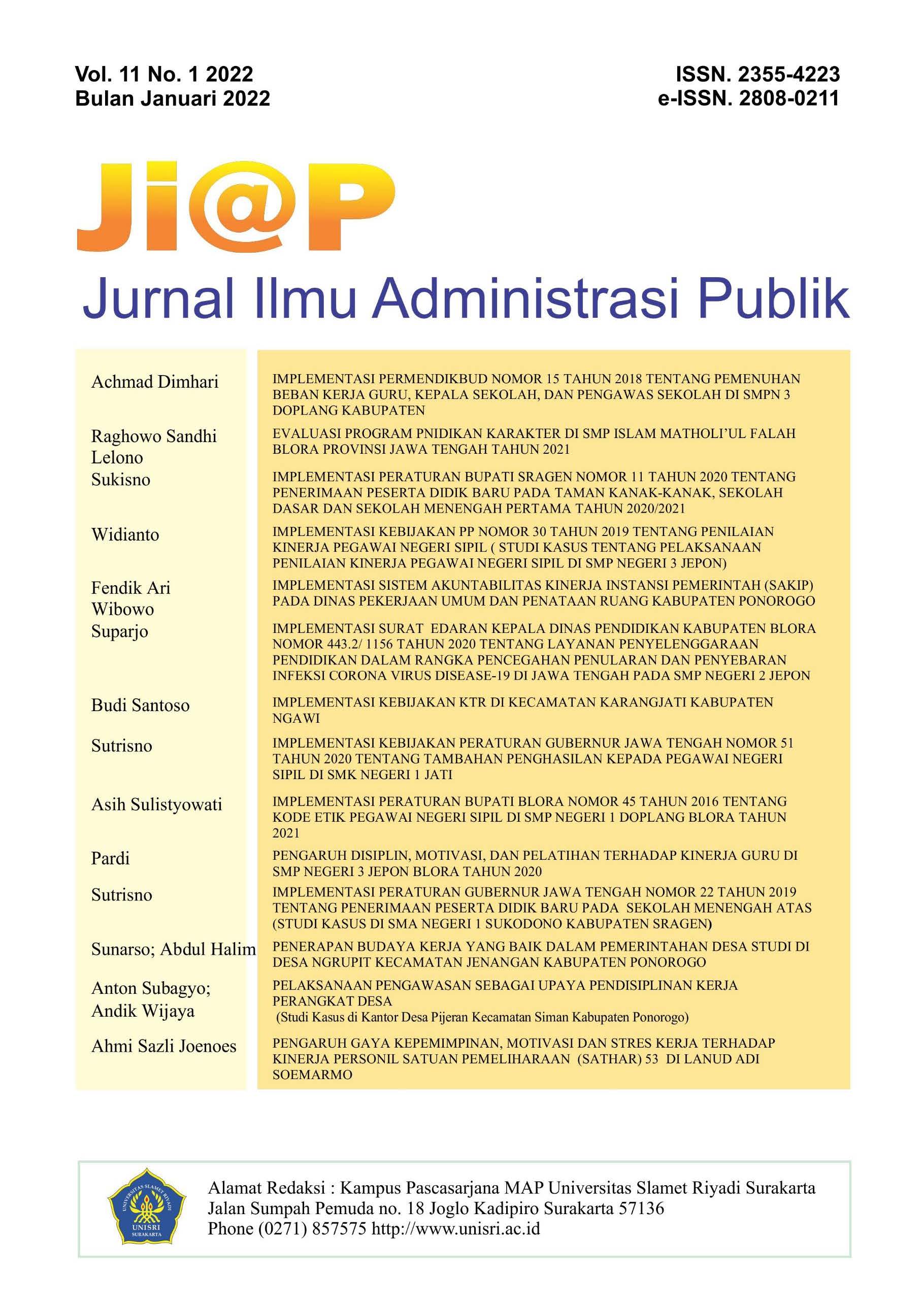EVALUASI PROGRAM PENDIDIKAN KARAKTER DI SMP ISLAM MATHOLI’UL FALAH BLORA PROVINSI JAWA TENGAH TAHUN 2021
DOI:
https://doi.org/10.33061/jp.v11i1.6172Keywords:
Program Evaluation, Character Building, EducationAbstract
Evaluation of the program to know the achievement of the program
objectives by knowing the implementation of program activities. Context, Input,
Process, Product (CIPP) evaluation model is an easier model to understand and
assess in terms of character education in schools that will be thorough as a whole.
This study uses a qualitative method with data collection techniques through
interviews and documentation on school residents. The results showed that the
character education program at Matholiuúl Falah Islamic Junior High School was
almost entirely well run, the shortcomings occurred in the facilities and
infrastructure, few students were not disciplined. The evaluation of the character
education program at SMP Islam Matholi'ul Falah Blora, Central Java Province,
has got good results in planting character values implemented, and internalization
or habituation of character education of each student conducting activities in
school. His advice is to improve the understanding and ability of school residents
for character education in his school.
Keywords: Program Evaluation, Character Building, Education.
Downloads
Published
How to Cite
Issue
Section
License
Copyright (c) 2022 Ragowo Sandhi Lelono

This work is licensed under a Creative Commons Attribution-NonCommercial 4.0 International License.
Authors who publish this journal agree to the following terms:
- Authors retain copyright and grant the journal right of first publication with the work simultaneously licensed under a Creative Commons Attribution License that allows others to share the work with an acknowledgement of the work's authorship and initial publication in this journal.
- Authors can separately make additional contractual arrangements for non-exclusive distribution published by the journal (e.g., publish it in a book), with an acknowledgement of its initial publication in this journal.
- Authors are allowed and encouraged to send their work via online (e.g., in the institutional repositories or their website) after published by the journal.













